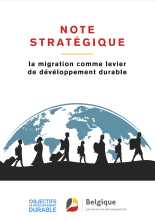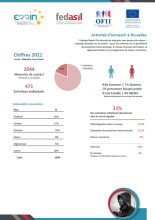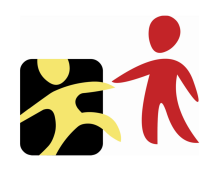Apprenez des autres qui mettent en œuvre le Pacte mondial sur les migrations et soumettez votre propre pratique.
Explorez les ressources du Pôle par objectif et principe directeur du Pacte mondiale et soumettez vos propres documents.
Rejoignez les discussions et partagez vos connaissances sur la mise en œuvre du Pacte mondial sur les migrations.
Accédez aux conseils élaborés par le UNNM, y compris des conseils en ligne sur la mise en œuvre du Pacte mondiale.
Recherchez dans la base de données des experts en migration et contactez-les pour obtenir de l'aide.
After joining the Hub, submit your content related to implementing the Global Compact for Migration here. Your submission will be peer reviewed.

Cette carte indique le nombre de Pratiques publiées à ce jour. Toutes les Pratiques font l'objet d'un examen par les pairs avant d'être publiées.
Dernier contenu
Océanie
Asie
Afrique
Europe
Amériques
Featured content
More GCM-relevant platforms
- SecretariatMapping the Landscape of the Smuggling of Migrants: An Overview of Key Concepts, Trends, Challenges and Areas for Action
 International Organization for Migration (IOM)
International Organization for Migration (IOM)Le Portail Sur Les Données Migratoires vise à servir de point d'accès unique à des statistiques de...
 KNOMAD
KNOMADLe Global Knowledge Partnership on Migration and Development (KNOMAD) est un centre mondial de...
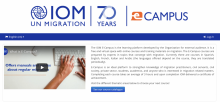 International Organization for Migration (IOM)
International Organization for Migration (IOM)E-campus est la plateforme de cours en ligne de l'OIM; c'est un espace gratuit regroupant des cours...
HUB Events
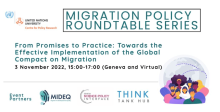 United Nations University Centre for Policy Research - UNU-CPROnline | Public-
United Nations University Centre for Policy Research - UNU-CPROnline | Public- United NationsPublic-
United NationsPublic-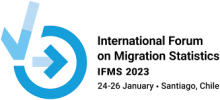 UNDESA, OECD, International Organization for Migration (IOM)-
UNDESA, OECD, International Organization for Migration (IOM)-
*Toutes les références au Kosovo doivent être comprises dans le contexte de la résolution 1244 (1999) du Conseil de sécurité des Nations Unies.
Newsletter
Subscribe to our newsletter.

